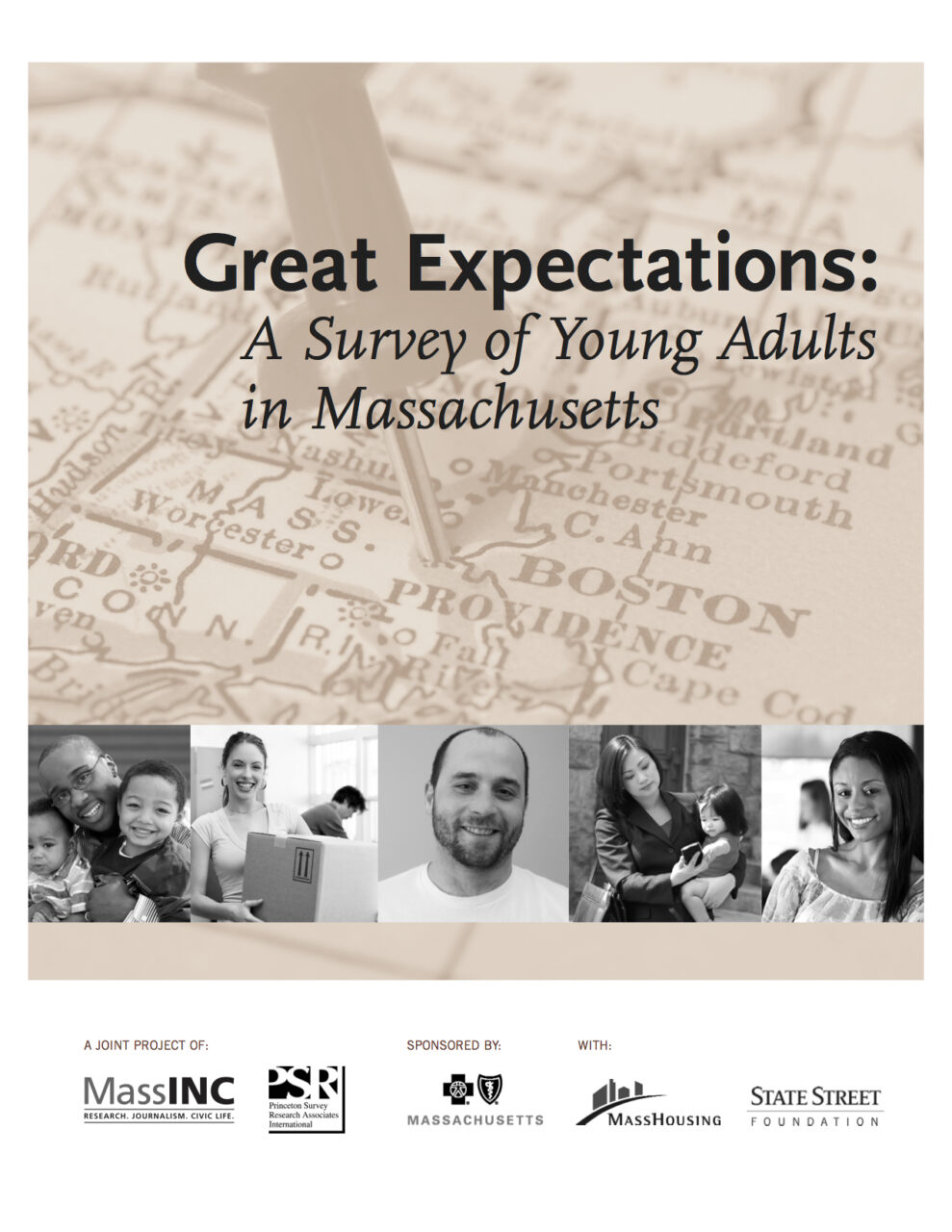This project was made possible by the generous support of Blue Cross Blue Shield of Massachusetts with MassHousing and State Street Foundation.
This groundbreaking survey represents the first of its kind for our state-and we believe the first nationally. The choices of young adults about where to live and work are critical to our state’s economic future. At the same time, as more and more regions across the country seek to build their knowledge economies, the competition for young skilled workers is growing fierce.
Despite the importance of young adults, there has been little work that investigates their views and priorities. This research fills that gap. We interviewed 801 young adults-those between the ages of 25 and 39-who live in Massachusetts. The survey paints a comprehensive and fascinating picture of their views, both on their personal lives and on public policy issues. Through their words, clear messages to policymakers and other civic leaders emerge about steps that they can take to make the state more appealing.
This survey reveals that, overall, young adults strongly believe in the American Dream. They see a bright future for themselves and also for future generations. Only 4 percent think that their incomes will go down over the next five years, and only 7 percent of parents think that their children will be worse off than they are financially.
Their optimism about their own lives, however, does not carry over to their views about government. Instead, the majority of young adults lack confidence in government’s effectiveness. In fact, only 4 percent are very confident that state and local government can improve the policy area that they believe should be government’s highest priority. We uncover the connection between their views on taxes and their confidence in government. Of those adults who have a lot or some confidence in state government, 52 percent think that taxes are either about right or too low. Conversely, among those who have either not too much or no confidence in government, only 21 percent believe that taxes are about right or too low.
In sharp contrast to their views about the public sector, young adults are overwhelmingly positive about their jobs and current employers. A substantial majority of the employed reports being satisfied with their jobs. In addition, the importance of working for a socially responsible employer is a clear priority, perhaps in the same way in which job stability might have defined earlier generations. Nearly three-quarters of young adults believe that it is very important to work for an employer who is respectful of ethical values, people, communities, and the environment. Remarkably, nearly 90 percent think that their current employers meet that test.
Finances are the biggest problem facing young adults and their families, with 30 percent saying that personal finances, paying bills, not having enough money, and making ends meet is their biggest problem. Another 20 percent call the high cost of living and housing their biggest problem. Most young adults say they have experienced financial strain in the past five years with 32 percent admitting to taking on more debt than they can handle. Four in 10 (41%) young adults report that they have $10,000 or more in total debt, including all debt from credit cards, loans, and medical bills but not including a mortgage.
The survey identifies three specific subgroups of young adults: those who moved to Massachusetts as adults (Imports); those who grew up in Massachusetts (Homegrowns); and those who grew up in Massachusetts and lived outside the state as adults for at least a year and returned (Boomerangs). There are key demographic differences between these subgroups. For instance, 60 percent of Imports have a college degree compared with 32 percent of Homegrowns. Jobs, education and skills are more of a concern for Homegrowns. Among Imports who are concentrated in Greater Boston, housing and cost of living are key issues.
